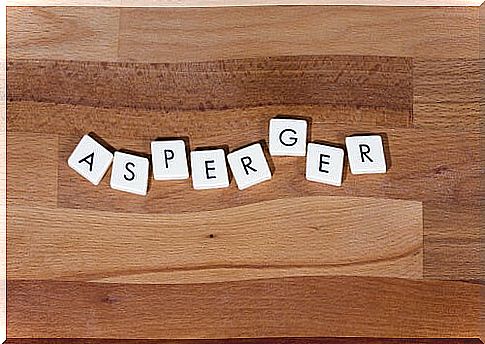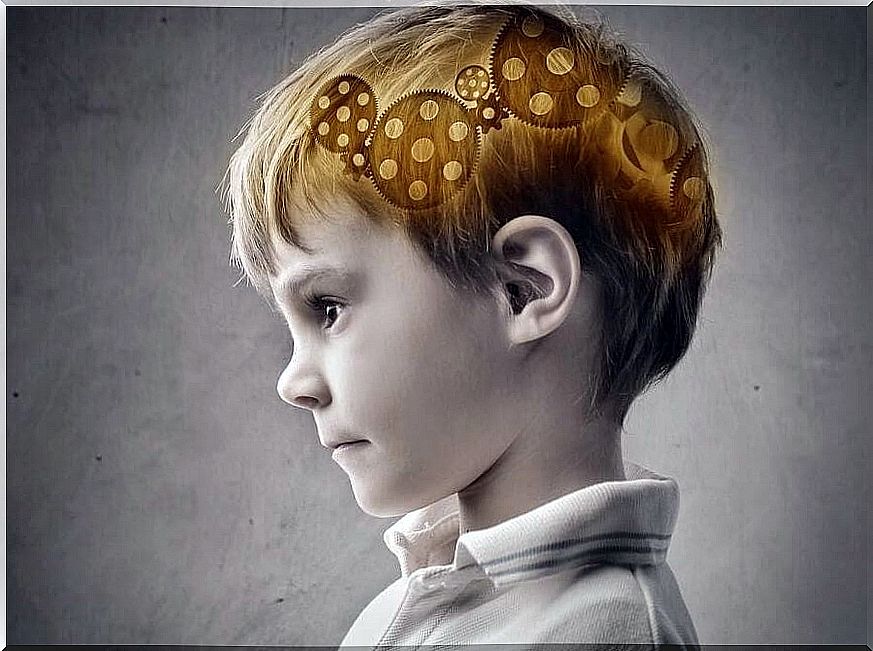Do You Know Asperger’s Syndrome?

Perhaps you have ever heard of it or have met someone with this syndrome, or you yourself, who are reading this article behind your screen, live with this Asperger syndrome.
Asperger syndrome is an autism spectrum disorder. However, it clearly differs from typical autism thanks to multiple investigations that are being done in this field. The most obvious difference has to do with the ability to be independent in adult life, compared to people with more prototypical autism.
Asperger syndrome is a neurodevelopmental disorder
It is a neurodevelopmental disorder, with an important and hereditary genetic basis in which there are brain structures that are damaged. But … what are neurodevelopmental disorders?

They are a heterogeneous group of neurological problems in which there are alterations in different processes: in cognition, communication, behavior and motor skills. These alterations are caused by atypical brain development.
That is, the brain of people with Asperger’s works in many ways differently from that of people who have not had alterations in their neurodevelopment. We are not talking about something bad or good, we are talking about a differential functioning in the way of processing and perceiving information.
People with Asperger syndrome perceive the world differently
Somehow it is as if they have different codes to interpret the world and its environment. These different codes make them live in a way that some people find strange.
But who hasn’t met people who sometimes act differently than expected? Even we ourselves sometimes perceive reality in a distorted way and this leads us to act in ways that others consider strange.
Let’s specify a little more and talk about the most typical characteristics in this Asperger syndrome. According to the Asperger confederation in Spain we would talk about the following:
- They are socially awkward and have difficulties in their relationships with other children and / or adults. They can be naive and gullible.
- They are often unaware of the feelings and intentions of others or of understanding these emotional reactions.
- They have great difficulty carrying and maintaining the normal rhythm of a conversation. They are easily altered by changes in routines and transitions.
- They interpret the language literally and therefore the understanding of what they hear. (They do not understand the irony, for them it is something literal. For example, the phrase “he has a heart that does not fit in his chest” for them the interpretation is literal. His heart is so extremely large that it does not fit in his chest).

What’s more:
- They are very sensitive to loud sounds, colors, lights, smells, or tastes.
- They have a tendency to develop a very great interest (fixation) in a subject or object of which they can become real experts. (There are many Asperger children who see a landscape in just a few seconds and are able to reproduce absolutely every detail of it with astonishing precision).
- Their motor skills are not very good, so they are not usually very good at sports.
- They often have a certain inability to make or keep friends their own age. (Basically because they do not perceive the world in the same way and this frustrates them. As it happens to any of us when we do not fit in with another person because our ways of seeing the world and living it are antagonistic. Well, something similar happens in them).
Do you know someone with Asperger’s? Put yourself in his place and you will understand him
Therefore, we must be able to go beyond the disorder. People with Asperger’s often feel misunderstood. They feel strange in a world that works with rules that sometimes clash with their own. They do not understand the meaning of many of the actions that we carry out.

That is why we have to do a deep work of empathy towards them. Understand that their way of perceiving reality is different from ours. And this does not imply that it is bad or good, but that it is different.
We live in a wonderful world where, luckily, we are all different and we can learn from these differences. Differences that enrich relationships and help us to be more tolerant and to discard much of the prejudices that we carry in our vital backpack.









